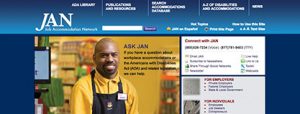Helpful Websites
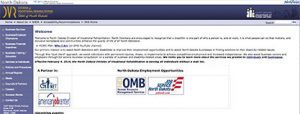
North Dakota Division of Vocational Rehabilitation
Helps North Dakotans with disabilities find and keep jobs.
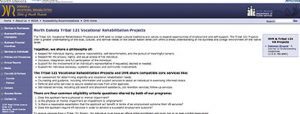
Tribal 121 Vocational Rehabilitation Projects
Bridges cultural traditions and values to expand job opportunities to those in Indian Country.
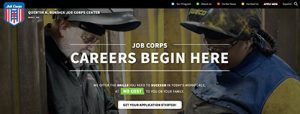
Quentin Burdick Job Corps
A no-tuition education and career technical training program for people ages 16-24.

Operation Intern
Offers internship, work experience, and apprenticeship positions in North Dakota.

North Dakota Apprenticeship Program
Provides training and other apprenticeship opportunities for many jobs throughout North Dakota.

O*NET Online
A fantastic tool for career exploration and job analysis for individuals with a disability.

Rocky Mountain ADA Center
Provides information on the Americans with Disabilities Act (ADA).

High School Financial Planning Program
Free, comprehensive personal finance curriculum for teens.
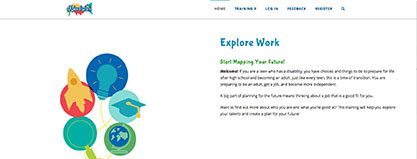
Explore Work
Free online training to explore what job options you have after school.
Job Service North Dakota
Know what jobs are out there.
A great place to start is the Job Service North Dakota website.
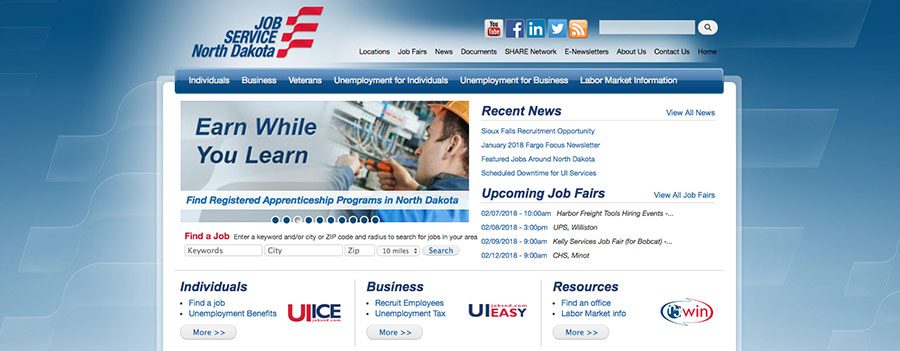
It’s important to know your rights.
Visit the National Disability Rights Network for more information.

ADA (Americans with Disabilities Act)
If you are an individual with a disability, you should be aware of how the disability may affect your job performance. The Americans with Disabilities Act (ADA) prohibits discrimination on the basis of disability in employment, state and local government services and transportation, public accommodations, and telecommunications.
Self-Disclosure
If you have a disability and are preparing to enter the workforce, you’ll need to decide whether to tell your potential employer about your disability. This is called “self-disclosure.”
When it comes to self-disclosure, there are two important terms: reasonable accommodation and essential job function.
What is a reasonable accommodation?
A reasonable accommodation is a change to a work site or job that makes it possible for an otherwise qualified employee with a disability to do the job. When you ask for reasonable accommodations from a potential employer, they must consider your request.
Reasonable accommodations include, but are not limited to:
- Modifying a work station
- Modifying a work schedule
- Installing adaptive or assistive technology
To know whether you need a reasonable accommodation for a job you’re applying for, ask yourself:
- What are the key functions of the job?
- Will my disability interfere with performing these key functions?
Important info about reasonable accommodations:
- An employer must provide a reasonable accommodation if it doesn’t create a hardship for the business.
- Reducing performance standards below that of other employees is NOT a reasonable accommodation.
- If you can’t perform a job with reasonable accommodations, you are not qualified for the job.
What is an essential job function?
An essential job function is the minimum required duties necessary to do the job. Understanding the essential functions of the job is important to the interview process, whether you learn them before the interview or ask about them during the interview.
During the interview, you may have to decide whether a reasonable accommodation is needed and whether to raise the issue.
Important information about essential job functions
- Ask yourself whether your disability will keep you from performing the key functions of the job if the employer doesn’t make reasonable accommodations.
- If you can’t do the job without a reasonable accommodation, the employer can consider either providinga reasonable accommodation or not requiring you to perform the key function.
- If your inability to perform the essential function has nothing to do with your disability, you should be considered on the same terms as other applicants.
For more information on workplace accommodation or ADA, visit the Job Accommodation Network.
How to Master Soft Skills for
Workplace Success
Soft Skill #1: Communication
Soft Skill #2: Enthusiasm & Attitude
Soft Skill #3: Teamwork
Soft Skill #4: Networking
Soft Skill #5: Problem Solving & Critical Thinking
Soft Skill #6: Professionalism
When to Disclose Your Disability
An employer cannot legally ask disability or medical questions in an interview. Unless a job is offered, the employer may not have you submit to a medical examination—that is, unless they require ALL applicants to have the medical examination.
There is a difference between having a disability and having disability job-related limitations.
Information about your disability which employers DO NOT need to know and DO NOT have a right to ask for include:
- Its definition
- Why or how it began
- Its effects and prognosis
- Past, present and future medical treatment
Disability job-related limitations, on the other hand, are about your need for a reasonable accommodation. Your potential employer may need this disability information about you:
- If you request a reasonable accommodation
- If the employer can’t evaluate performance of the essential functions with your disability


Helpful Hints about Self-Disclosure
- A potential employer has the right to ask if you can perform the essential functions of the job.
- Employers are required to accommodate only disabilities they know about.
- You have the right not to discuss or disclose your disability if you don’t need to ask for reasonable accommodations.
- You only need to explain how your disability will affect your ability to do the job.
If your disability requires a reasonable accommodation, request it. Then emphasize how it will help you contribute to the business. Remember, the employer’s job is to add value to the business, not to your life.
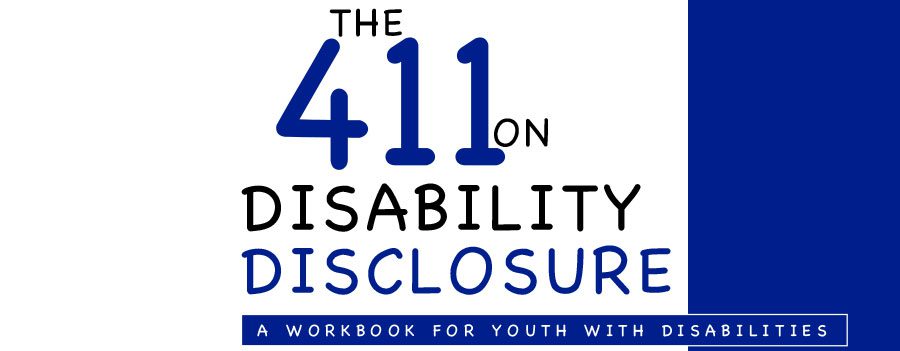
The 411 on Disability Disclosure
A workbook that provides you the expertise about disclosing a disability, from The National Collaborative on Workforce and Disability for Youth.

